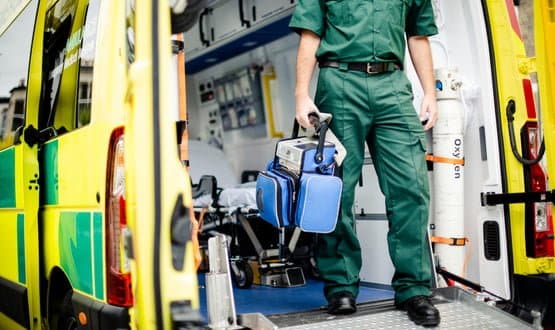Consultant Connect technology unlocks A&E capacity
- 25 May 2023

Technology from Consultant Connect is enabling paramedics to quickly and effectively treat patients by connecting them to specialist consultants in Same Day Emergency Care units for advice and guidance.
As a result, one in three calls to the service meant paramedics were able to avoid transporting patients to A&E according to the company, instead delivering them to the correct department and bypassing busy emergency rooms.
Dubbed ‘talk before you walk’, paramedics are able to avoid the NHS switchboard and instead reach specialists quickly, to help determine treatment routes for patients.
Once the paramedic has seen the patient, they can speak to consultants in a range of units, including Same Day Emergency Units (SDEC), frailty, GP out of hours and acute medicine.
The system is helping to smooth patient flow through the healthcare system as well as alleviate pressure on busy NHS A&E departments.
In addition, Consultant Connect also helps paramedics to quickly contact the pre-alert team, allowing A&E or other clinical areas to prepare appropriately for incoming patients.
Jonathan Will, a paramedic and national improvement advisor for NHS Scotland, said: “Professional-to-professional systems (also known as advice and guidance) like Consultant Connect make it possible for paramedics to receive specialist advice whilst they are with the patient – helping the patient to receive better care and saving hospitals vital capacity.”
Bypassing A&E
SDEC was launched by the NHS in May 2021 to treat patients who need hospital care but don’t require an overnight stay. Consultant Connect now provides 20 NHS areas with a fast and streamlined communications route to the units.
Consultant Connect is used by two in three UK ambulance trusts, including those in the West Midlands, Berkshire, Buckinghamshire and South East London, Tayside and Lanarkshire in Scotland and the whole of Wales.
Last July, delays in offloading patients to at-capacity A&E wards led to all ambulance services in England being put on the highest alert level. The use of services such as Consultant Connect helps to avoid unnecessary A&E visits and speed up patient care.
Jonathan Patrick, CEO of Consultant Connect, said: “Patients taken to hospital by ambulance crews often end up queuing to get into overrun A&E departments. The knock-on effect of ambulances being held up is a lack of ambulances for other patients who have called 999.
“Our service helps patients to get the care they need without going to hospital if it’s possible. Consultant Connect also acts as a triaging service, meaning patients can bypass the queue at A&E and go straight to SDEC or another appropriate ward. We can’t solve the crisis in A&E, but we can play our part in easing the pressures.”
Ambulance services are becoming increasingly more tech-driven. Earlier this year the East of England Ambulance Service NHS Trust announced it was the first ambulance service to pilot new technology that delivers enhanced connectivity, even in areas where cellular connectivity is impossible.




